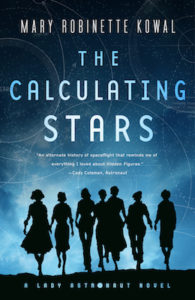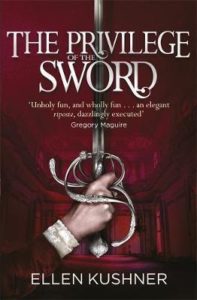Not quite 100 pages in on this one, I pronounced the Eight Deadly Words. Sorry, eponymous Jonathan. Even sorrier, Sophie, who lived and died some years before the main action, and who existed to give Jonathan regrets. And perhaps to show that the corrupt Egyptian brothers might be a darker shade of grey than the British spies. You at least deserved better.
I’ve read a lot of Le Carré over thirty years or so, and it may be that he just doesn’t have anything new to show me. Or maybe it was just this book. I have one more on my shelves (The Tailor of Panama), so eventually I will get around to testing this thesis.
He has, together with Ian McDonald, also cured me of using the word “discreet” to describe a place such as a club or restaurant, conveying a sense of wealth and privilege, of insider knowledge, of movers and shakers conversing quietly in booths and shaping the world away from the presumably indiscreet eyes and ears of ordinary people. Le Carré has often presented spies as something of a hidden aristocracy, and I’ve decided I don’t like it any more than any other aristocracy. Goodbye “discreet,” you are now keeping company with “outstanding.”
The eponymous Jonathan is the night manager at an old-fashioned hotel in Zurich. He is also a man with a past. That includes service with the British Army in Northern Ireland and various degrees of cooperation with British intelligence. Said cooperation led to poor Sophie’s death when Jonathan let the spooks know that Sophie’s biznesman boyfriend was freelancing some large arms sales. Said boyfriend put two and two together, and presto Jonathan had both regrets and motivation.
The main story gets started one evening in January 1991 as snow is falling on Zurich and bombs are falling on Baghdad. Jonathan has learned that “the worst man in the world” will soon be lodging in his hotel. “Richard Onslow Roper, trader, of Nassau, the Bahamas” (p. 3) is on his way with his free-spending retinue to take up residence in a vast suite and shower money on the Hotel Meister Palace. Roper had been a counterparty to the Egyptian boyfriend, and probably the source of the two and two that the boyfriend added up so fatefully for poor Sophie. He trades in cocaine and weapons, among other things. He has lawyers and shell companies and plausible deniability out the wazoo. He has connections to various intelligence services, especially the British. They think he is in their pocket, and he thinks they are in his. It is a topological conundrum.
But it was not enough for me to care what happens to these people. Even the good bits, some of which — the story of Herr Kaspar’s toupee, for example — are quite good (this is Le Carré after all), were not enough. The protagonist will survive but not triumph; the antagonist will get away, though not cleanly; many prices will be paid, and few rewards will be reaped. About a fifth of the way through The Night Manager, I set it down and have not picked it up again. They will have to meet their fates without me.









